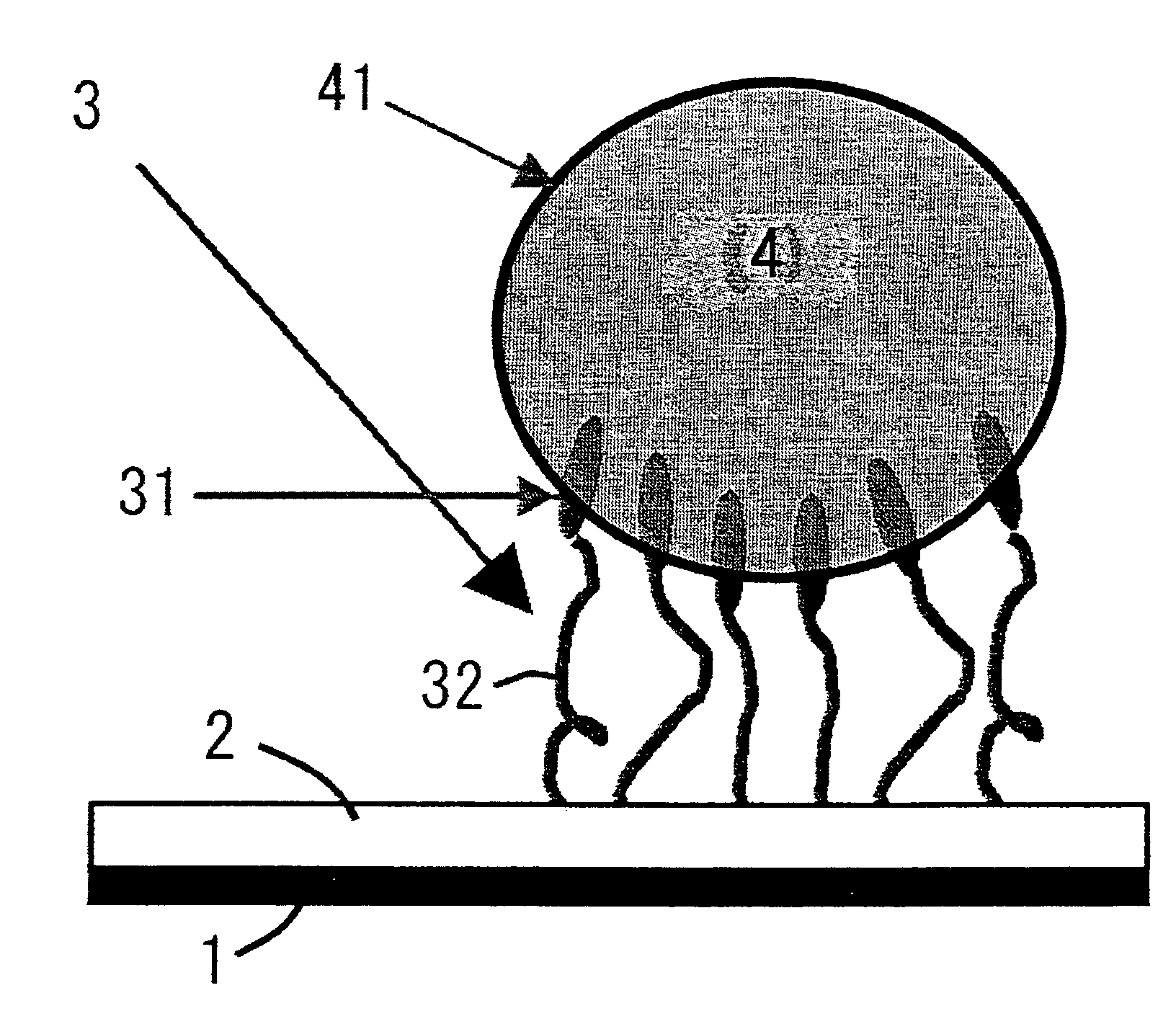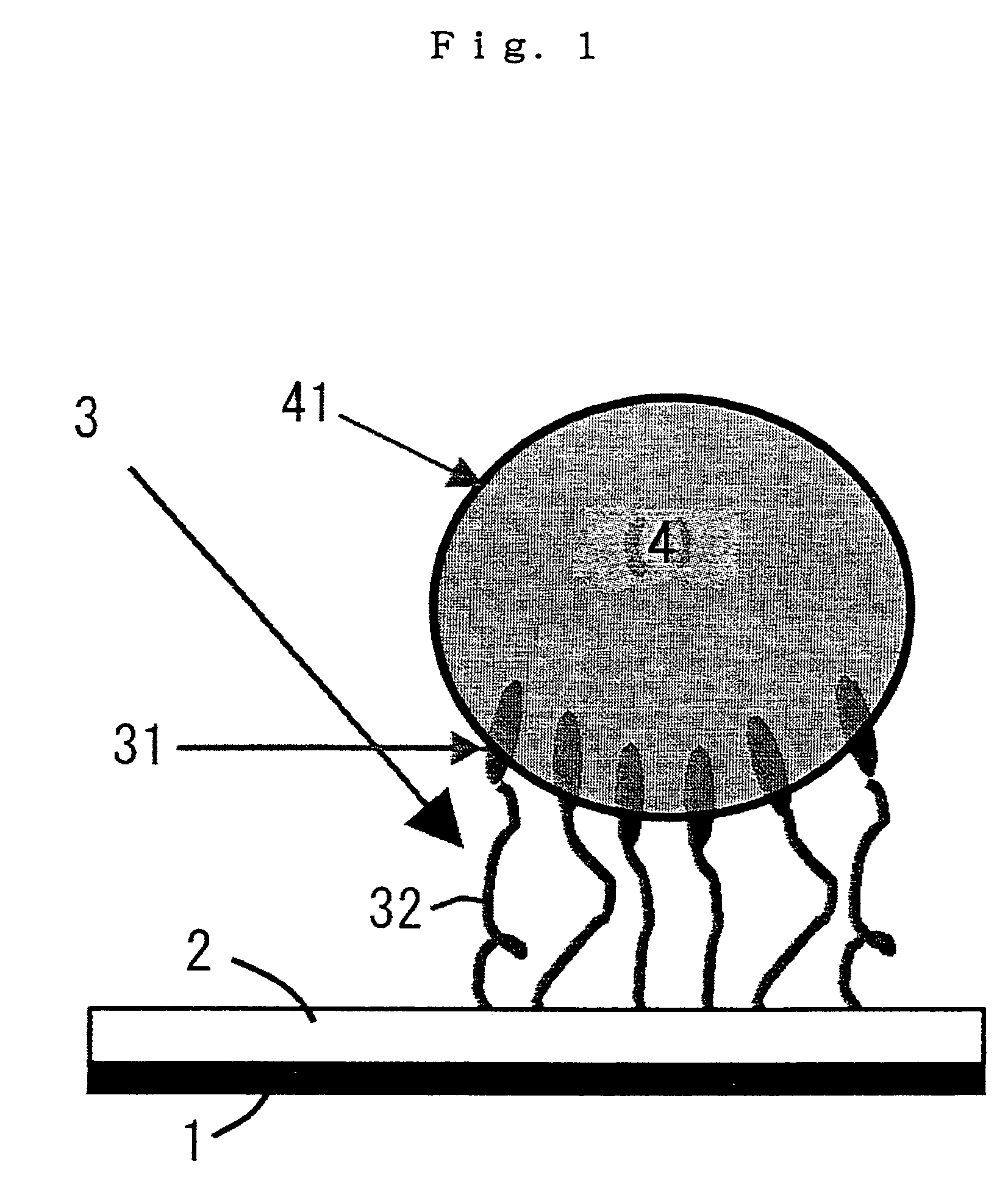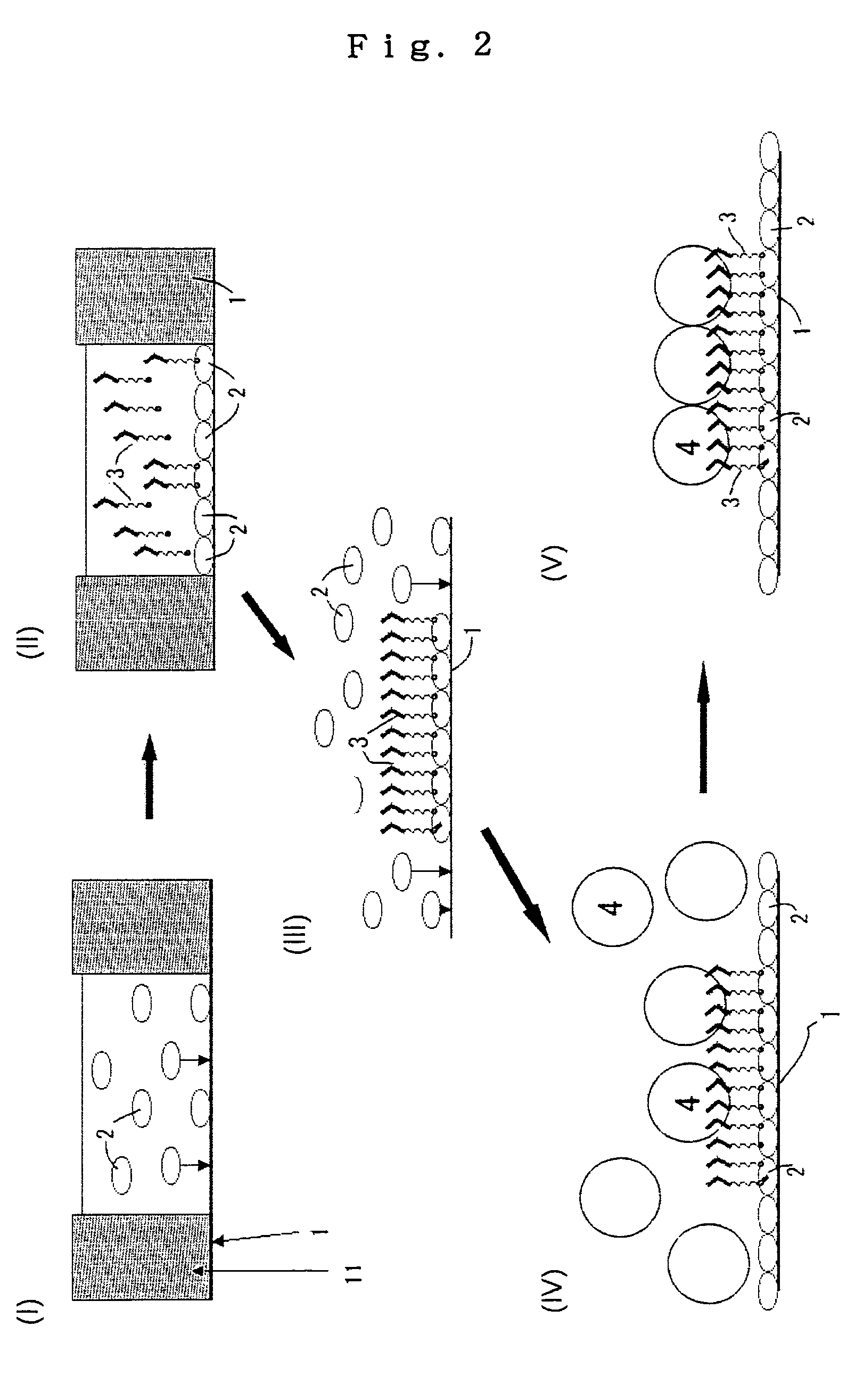Immobilized cells and liposomes and method of immobilizing the same
a technology of immobilized cells and liposomes, applied in the field of immobilization materials, can solve the problems of known methods of immobilizing blood cells, difficult to immobilize cells against gravitational force, adhesion and proliferation take a long time,
- Summary
- Abstract
- Description
- Claims
- Application Information
AI Technical Summary
Benefits of technology
Problems solved by technology
Method used
Image
Examples
example 1
(1) Preparation of Oleyl-O-PEG Immobilization Support
[0068]To a polystyrene culture dish, an appropriate amount of an aqueous solution of 1% bovine serum albumin (BSA (fatty acid free, low endotoxin; Sigma)) / phosphate buffered saline (PBS (GIBCO)) was added and left at 37° C. for 3 hours so as to adsorb BSA to the culture dish. The culture dish was washed with PBS several times and a PBS solution (100 μM) of Oleyl-O-PEG (4000)-NHS (PEG Mw:4000 Da, n=90) represented by the chemical formula (I) was added and reacted at room temperature for 1 hour.
[0069]
[0070]The culture dish was further washed with PBS several times, and an Oleyl-O-PEG (4000) binding support was obtained.
[0071]The obtained support was stored in a solution at 4° C. or stored after drying until they were used.
(2) Immobilization of Cells
[0072]Suspension cells (mouse myeloid 32D) of cell density 1×106 cells / ml were suspended in a serum-free medium (RPMI1640 (Nissui Pharmaceutical Co., Ltd.)) and an appropriate amount ther...
example 2
[0081]By the same method as in Example 1, an immobilization support was prepared by using Oleyl-O-PEG (8000)-NHS (PEG Mw: 8000 Da, n=180) instead of Oleyl-O-PEG (4000), and 32D cells were immobilized.
example 3
[0086]The same operation as in Example 1 was conducted using Oleyl-O-PEG (2000)-NHS (PEG Mw: 2000 Da, n=40) instead of Oleyl-O-PEG (4000)-NHS and 32D cells were immobilized.
PUM
| Property | Measurement | Unit |
|---|---|---|
| distance | aaaaa | aaaaa |
| Mw | aaaaa | aaaaa |
| Mw | aaaaa | aaaaa |
Abstract
Description
Claims
Application Information
 Login to View More
Login to View More - R&D
- Intellectual Property
- Life Sciences
- Materials
- Tech Scout
- Unparalleled Data Quality
- Higher Quality Content
- 60% Fewer Hallucinations
Browse by: Latest US Patents, China's latest patents, Technical Efficacy Thesaurus, Application Domain, Technology Topic, Popular Technical Reports.
© 2025 PatSnap. All rights reserved.Legal|Privacy policy|Modern Slavery Act Transparency Statement|Sitemap|About US| Contact US: help@patsnap.com



